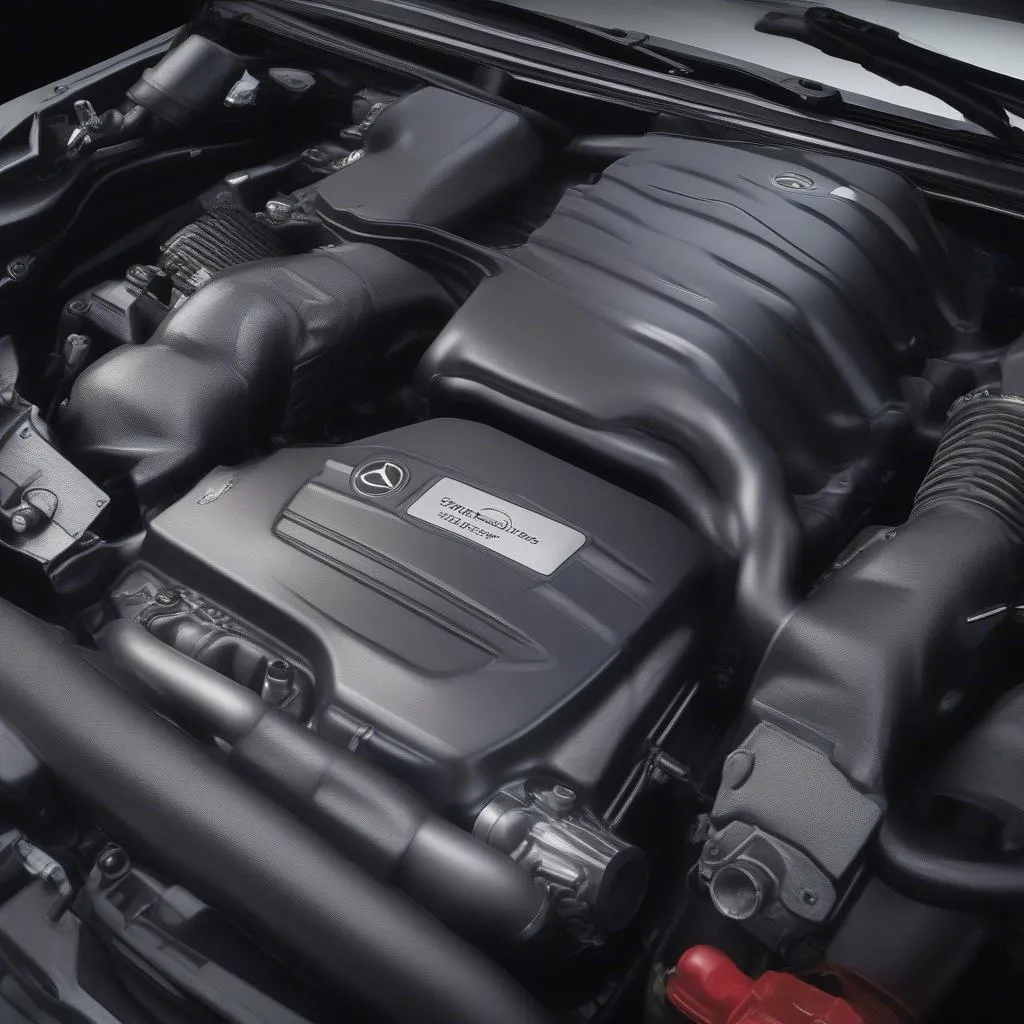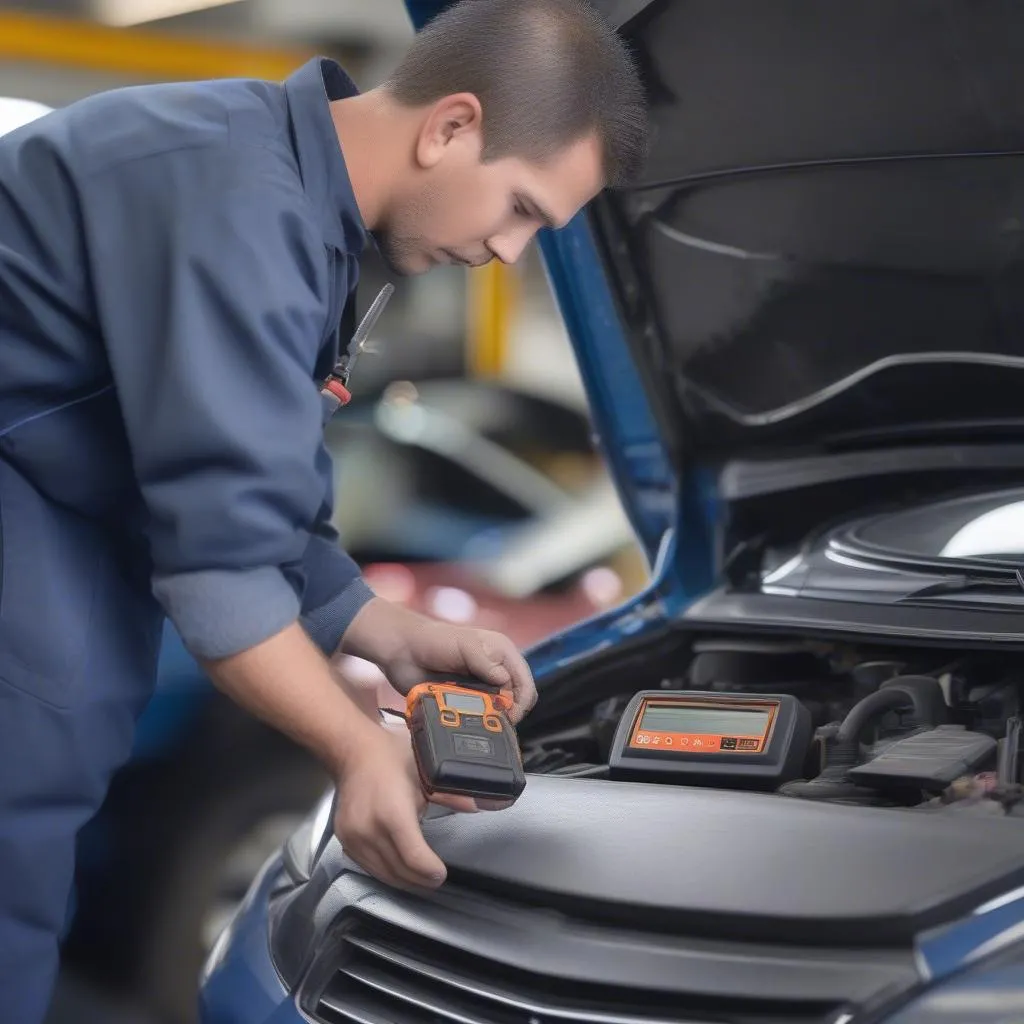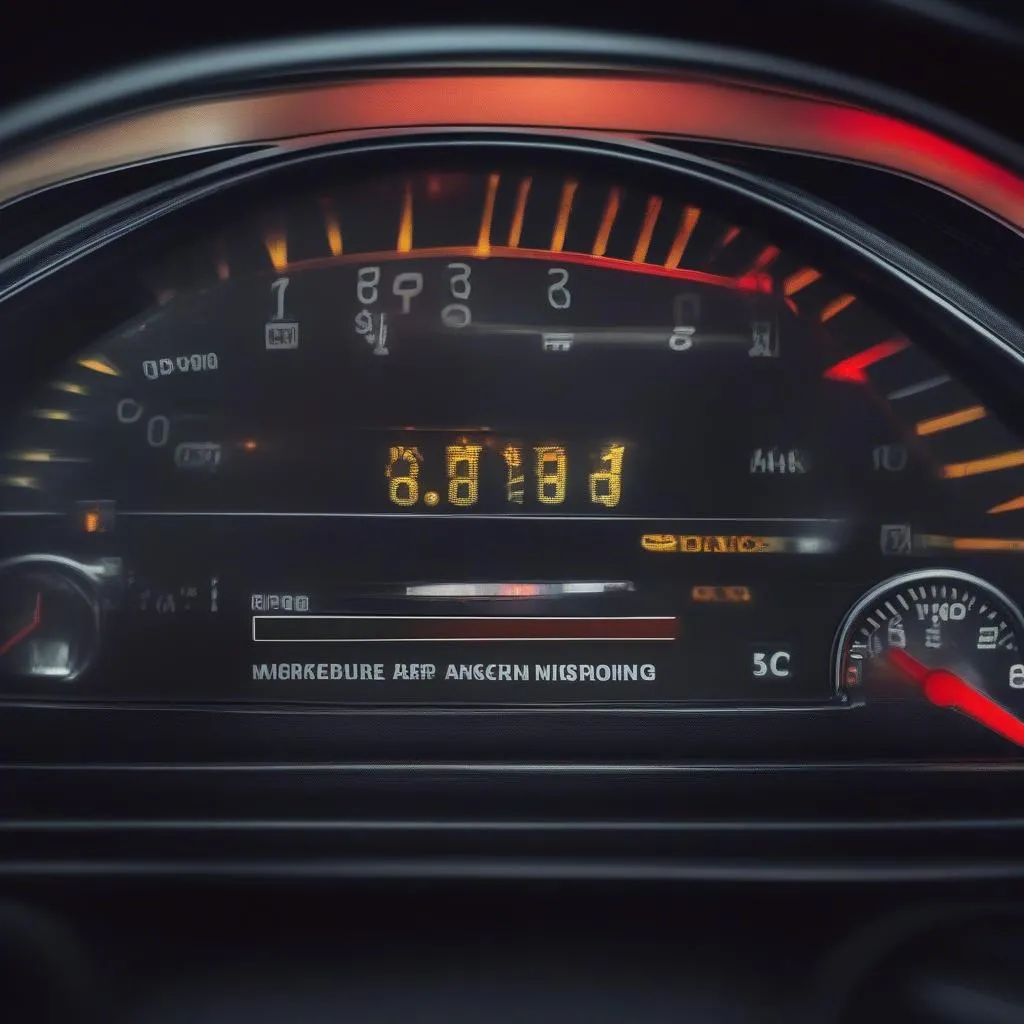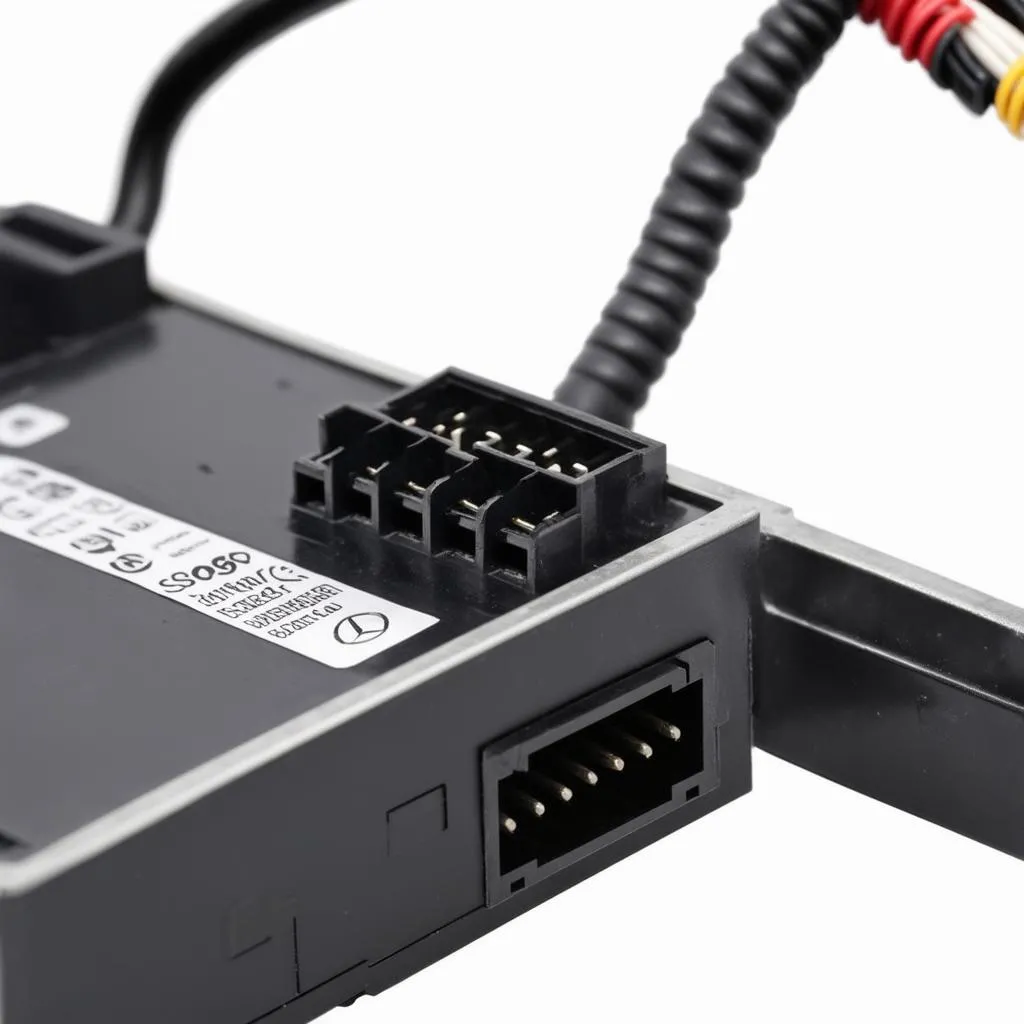Experiencing a disconcerting knocking noise coming from your Mercedes M320’s engine, particularly when accelerating? This could be the dreaded “liquid knocking” sound, a common issue in these models that, if left unattended, can lead to significant engine damage. This comprehensive guide will help you understand the causes, symptoms, and solutions for Mercedes M320 liquid knocking noise.
Understanding “Liquid Knocking” in Your Mercedes M320
“Liquid knocking,” often confused with traditional engine knocking, actually refers to a hydraulic issue within your engine. Unlike detonation knock caused by premature fuel ignition, liquid knocking originates from hydraulic lifters or, more specifically, a lack of proper lubrication within these components.
Hydraulic lifters, crucial for maintaining optimal valve operation, require a constant flow of pressurized oil. When this flow is disrupted, often due to wear and tear or blockages, the lifters can’t maintain the correct pressure, resulting in a tapping or knocking sound – the infamous liquid knocking.
Identifying the Telltale Signs
While a knocking sound is a primary indicator, it’s essential to differentiate it from other engine noises. Here’s what to look out for:
- Knocking intensifies during acceleration or under load: Unlike a consistent knocking, liquid knocking is more pronounced when the engine is working harder.
- Noise lessens as the engine warms up: As oil thins with heat, it might temporarily restore some lubrication, reducing the noise. However, this doesn’t mean the problem is solved.
- Check Engine Light: In some cases, the check engine light might illuminate, often accompanied by poor engine performance.
Essential Tools and Preparations
Before embarking on the fix, gather the following tools and materials:
- Socket set and wrenches
- Torque wrench
- Engine oil and filter
- Hydraulic lifter additive (optional)
- New valve cover gasket (recommended)
Pro Tip: “Always replace your valve cover gasket when working on the lifters,” advises Mark Stevenson, author of “The Automotive Engine Repair Guide.” “This prevents future leaks and ensures a proper seal.”
Rectifying the Issue: A Step-by-Step Guide
- Safety First: Disconnect the negative battery terminal before starting any work on your car.
- Access the Valve Cover: Depending on your M320 model year, this might involve removing engine covers and other components. Consult your vehicle’s service manual for precise instructions.
- Inspect the Lifters: With the valve cover removed, you can visually inspect the lifters for signs of wear or damage.
- Cleaning and Lubrication: If the lifters seem functional, try cleaning them with a dedicated cleaner and adding a high-quality hydraulic lifter additive to your engine oil. This might temporarily resolve the issue if it’s caused by minor sludge or sticking.
- Lifter Replacement: If the knocking persists or the lifters show significant wear, replacement is necessary. This involves removing the rocker arms and carefully swapping out the old lifters with new ones.
- Reassembly and Testing: Once the lifters are replaced or cleaned, reassemble the engine components in reverse order, ensuring all bolts are torqued to the manufacturer’s specifications. After refilling the engine with fresh oil, start the engine and listen for any lingering knocking sounds.
 Mercedes M320 Engine
Mercedes M320 Engine
Frequently Asked Questions
Q: Can I drive my Mercedes M320 with liquid knocking?
While you might be tempted to continue driving, it’s strongly discouraged. Prolonged driving with this issue can lead to catastrophic engine damage, resulting in costly repairs.
Q: How much does it cost to fix liquid knocking in a Mercedes M320?
The cost can vary depending on the severity and whether you opt for professional repair or a DIY approach. A DIY fix involving cleaning and adding an additive might cost under $100. However, lifter replacement, especially at a mechanic, can range from $500 to over $1000.
Q: Are there any preventative measures for liquid knocking?
Regular oil changes with high-quality oil, along with using a good hydraulic lifter additive, can significantly reduce the risk of experiencing liquid knocking.
Q: Can a diagnostic tool help pinpoint the cause of the knocking?
While a diagnostic tool like those offered by CARDIAGTECH can be helpful in identifying engine issues, it might not always directly diagnose liquid knocking. However, it can reveal other problems that might contribute to the condition, such as low oil pressure.
 Car Diagnostic Tool in Use
Car Diagnostic Tool in Use
In Conclusion
Addressing liquid knocking in your Mercedes M320 is crucial for maintaining your engine’s health and preventing costly repairs down the line. While minor cases might be resolved with cleaning and additives, more persistent knocking often necessitates lifter replacement. If you’re unsure about tackling this repair yourself, seeking professional help from a qualified mechanic is always recommended.


